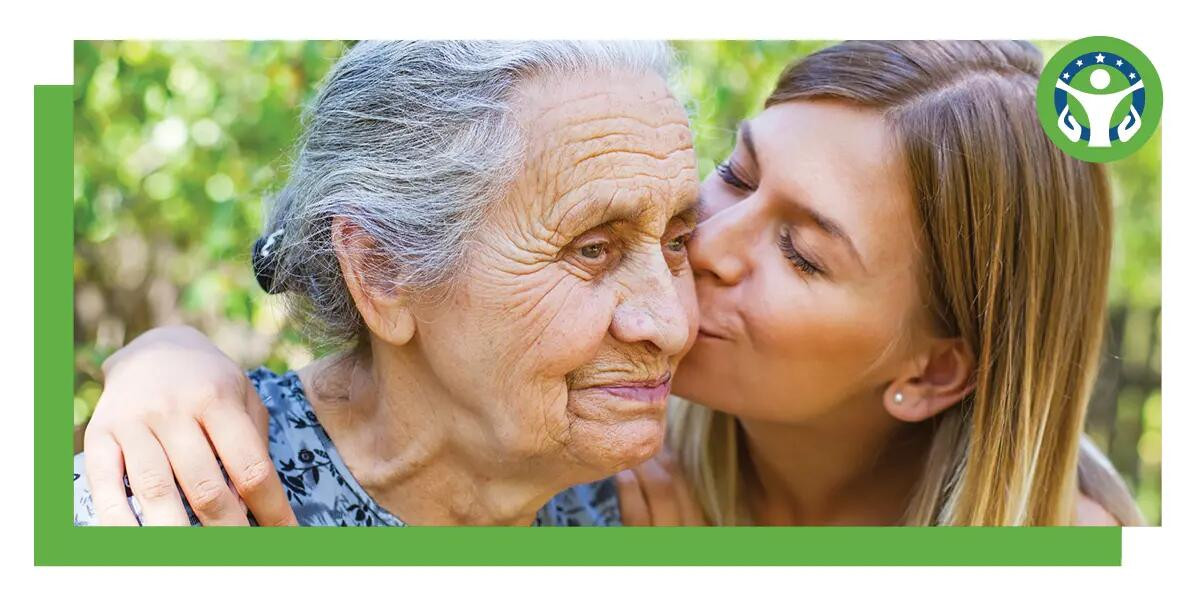Dementia Care: Families Can Improve Quality of Life

Recognizing family members as partners in dementia care can advance person-centered care and improve quality of life. These are insights presented in the consensus study report, The National Imperative to Improve Nursing Home Quality: Honoring Our Commitment to Residents, Families, and Staff, published by National Academies Press (NAP). “Family caregivers provide critical supports to nursing home residents, but they do not receive sufficient support, recognition, resources, or inclusion,” suggest the authors.
The role of families in dementia care
The report notes that in nursing homes, family caregivers can “serve as an extension of the staff” and can assume a wide variety tasks, such as:
- Visiting the resident
- Assisting with ADLs
- Providing emotional support
- Sharing the resident’s perspective and history
- Relating interests and preferences
- Assisting with decision-making
In addition, “family members often can help advocate for and help provide support for nonpharmacologic alternatives to help manage residents’ behavioral and psychological symptoms of dementia,” say the authors.
An “essential component of the workforce”
In light of nursing home staffing shortages and high turnover rates, it’s particularly important today to nurture the role of family caregivers, explain the authors. They characterize family caregivers as “an essential component of the workforce.”
Nursing homes and their residents can benefit from relationship-building, inclusion, and communications around resident care. A focus on relationships is key to providing quality care in nursing homes, explains the report. Family caregivers can help the resident with dementia maintain a sense of identity and help staff get to know the residents; they can be “co-creators” in a person-centered care plan; they can advance respect and a person-entered approach to the resident because of their own relationships.
A family caregiver may be a family member or friend, partner, or other caring person who has a relationship with the resident, making them part of the resident’s “chosen family”.
Person-centered care and CMS
According to CMS, person-centered care means to “focus on the resident as the locus of control and support the resident in making their own choices and having control over their daily lives.” Family caregivers can play an important role in informing a care plan that recognizes an individual resident’s goals, preferences, and values, says the NAP report.
This advice aligns with CMS F553, which specifies “the right to participate in the planning process, including the right to identify individuals or roles to be included in the planning process.” CMS guidance in the State Operations Manual explains that this “may include ensuring that residents, families, or representatives understand the comprehensive care planning process, holding care planning meetings at the time of day when a resident is functioning best, providing sufficient notice in advance of the meeting, scheduling these meetings to accommodate a resident’s representative (such as conducting the meeting in-person, via a conference call, or video conferencing), and planning enough time for information exchange and decision making.”
As families participate in care, resident outcomes improve, notes the NAP report. Both families and nursing home staff can “feel empowered.” In addition, families’ positive perception of quality of care is measurable. Learn more about person-centered dementia care in our blog.
Family education and support
Family caregivers often experience “high levels of stress,” says the NAP report, and they “can benefit from improved education and support for themselves.” The report authors recommend providing resources and education for family caregivers.
Healthcare professionals “are often uncomfortable handling educational components of dementia care,” says the report. The authors recommend sharing information about dementia as early as possible in the course of the illness, while offering sources for support. Dementia symptoms will change over time, so preparation and understanding can help family caregivers maintain their own well-being and participate effectively in care, suggest the authors.
Times of crisis
As dementia progresses, there can be crisis points, explain Osulic-Jeras and colleagues: e.g., an acute illness, an injury, a behavioral crisis such as agitation or wandering, or other sudden change. They advocate for “supporting families in a manner that reflects their preferences and provides options for best receiving such support, even into the later stages of dementia and through end of life.” They recommend starting with education and support early on, while preparing families for the future. They encourage care partners to “work together and plan together” and to reassess needs periodically.
Resources for families
The Family Caregiver Alliance offers educational resources for caregivers. Check out their tips for communicating with a person who has dementia and their guide to addressing troubling behaviors on their Caregiver’s Guide web page. The Alzheimer’s Association also maintains a library of resources and offers articles and videos for caregivers.
Neurobehavioral health expertise
Incorporating trained geropsychologists and licensed clinical social workers into your dementia care team can strengthen your support for family caregivers through the dementia journey, helping them process difficult information, participate in care planning, and take care of themselves.
“There are a lot of sad realities in working with folks with dementia,” explains Daniel Heiser. Psy D, Senior Vice President, Behavioral Health for GuideStar Eldercare, “but I think it’s’ very rewarding when you can bring to the process answers that really help and especially give families some comfort in the process that they’re going through with their loved ones.” He says it’s rewarding, too, to help families understand why they see troubling behaviors (BPSD), what the behaviors mean, and how the multi-disciplinary GuideStar Eldercare team can treat these symptoms, recognizing the basis of dementia symptoms in neurology.
GuideStar Eldercare brings clinical psychologists and licensed clinical social workers to your facility. They conduct resident assessments. They follow rigorous care models and clinical protocols that can improve CMS compliance, while providing ongoing communications with residents, families, and staff. Learn more about the value of integrated behavioral health services as you work to welcome family caregivers into your care team.
